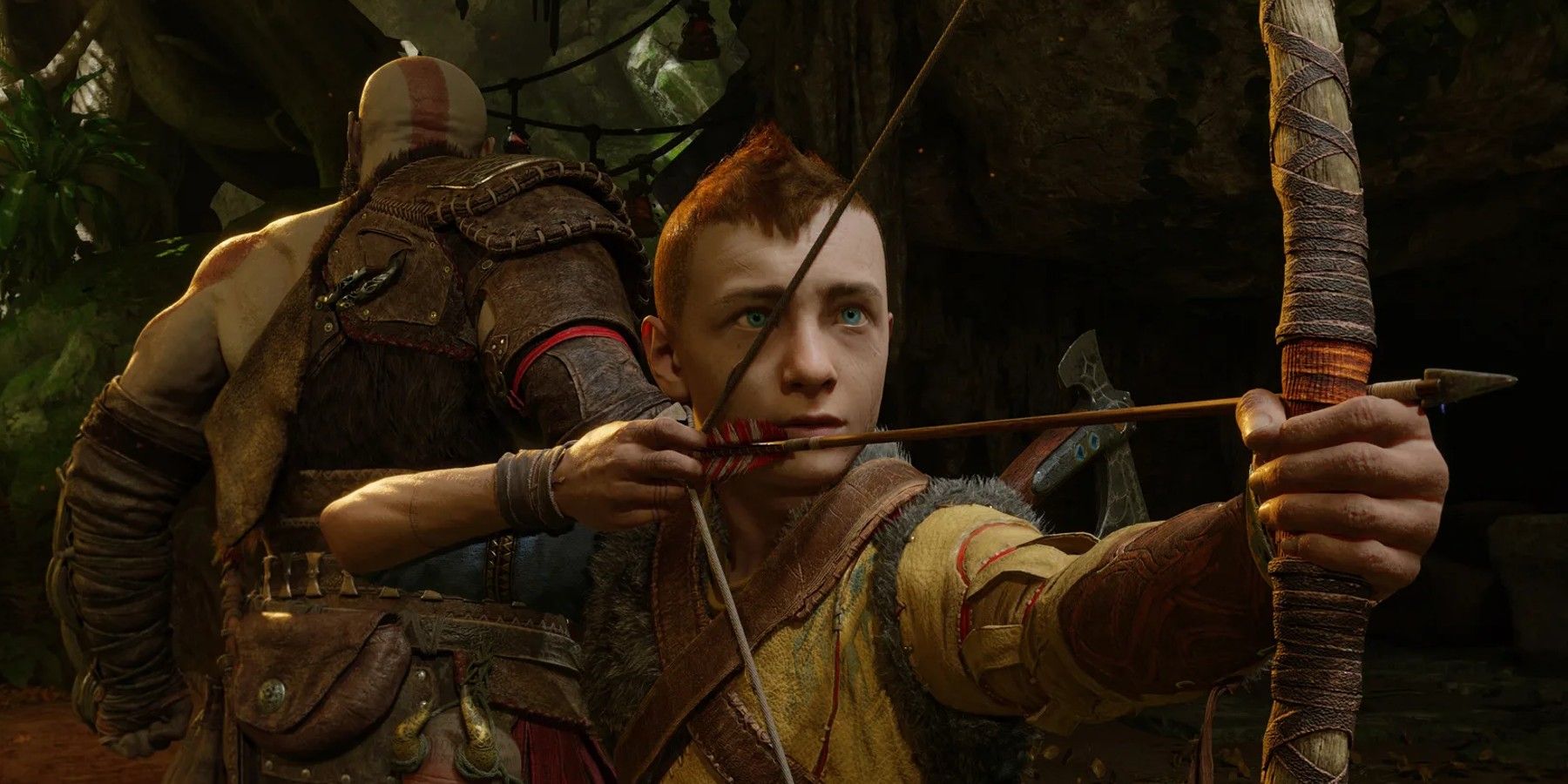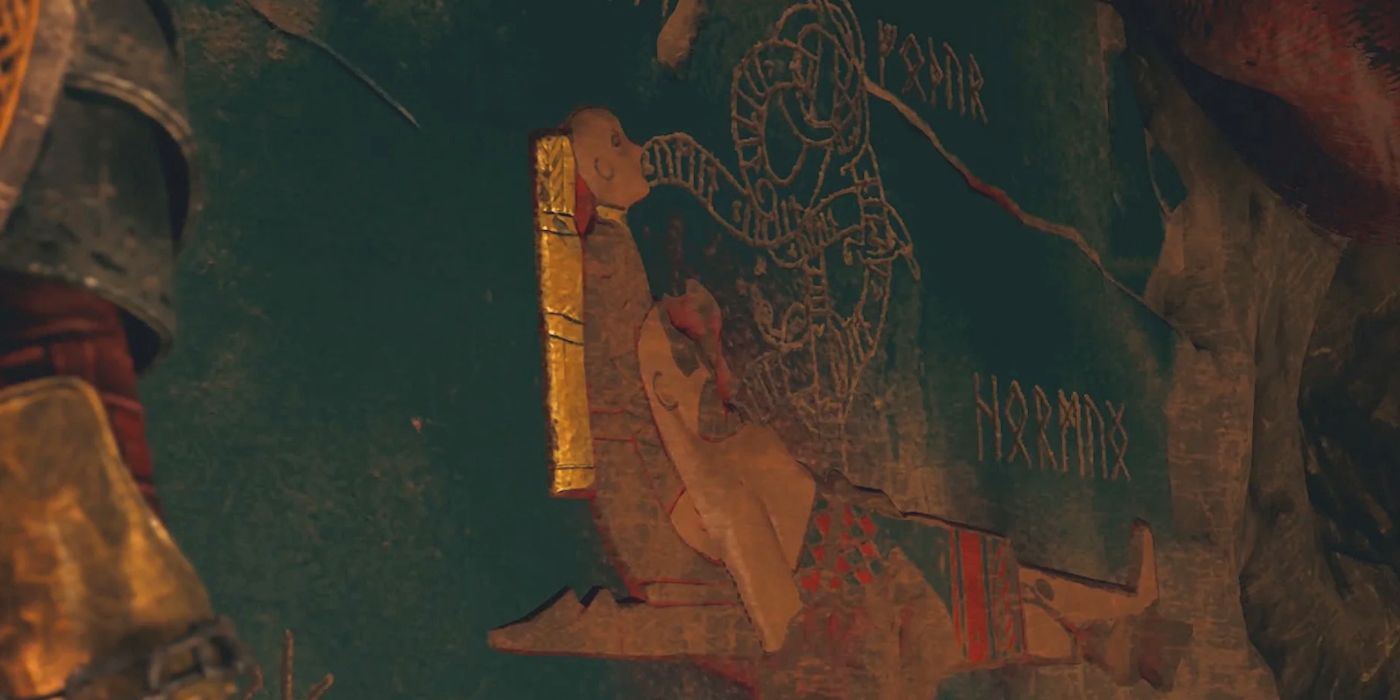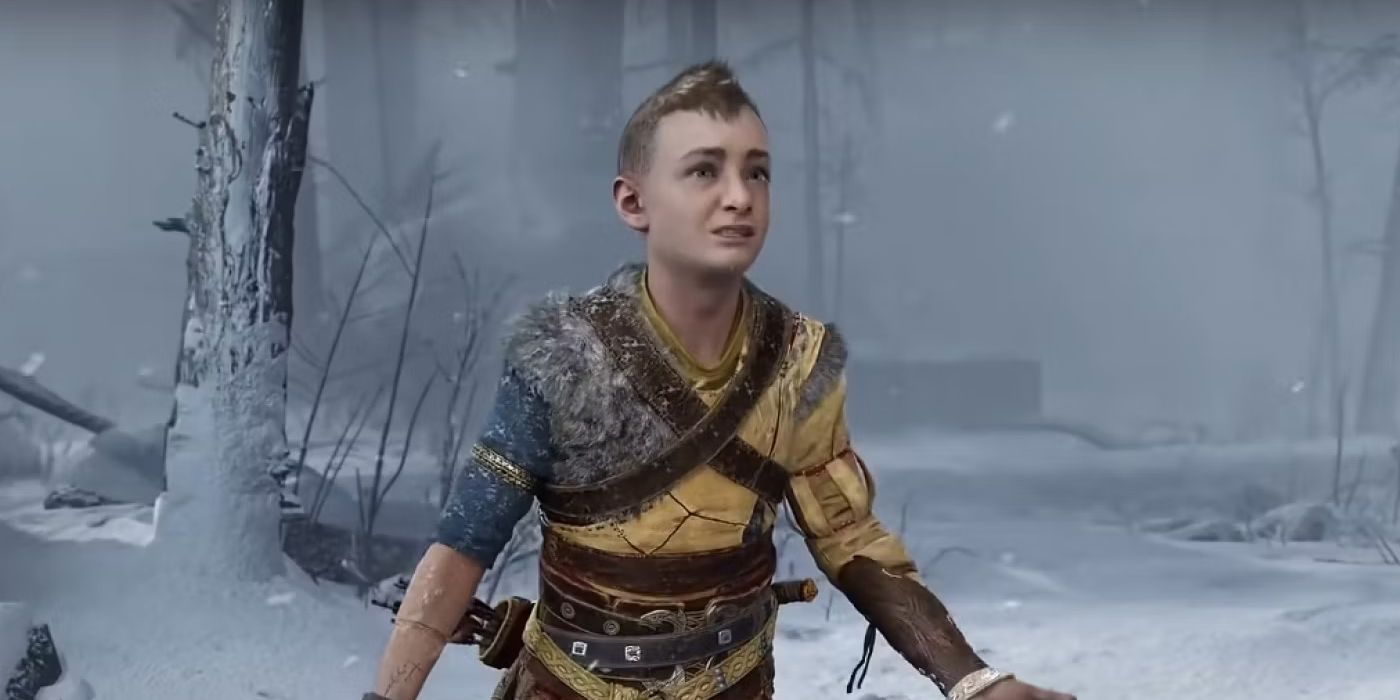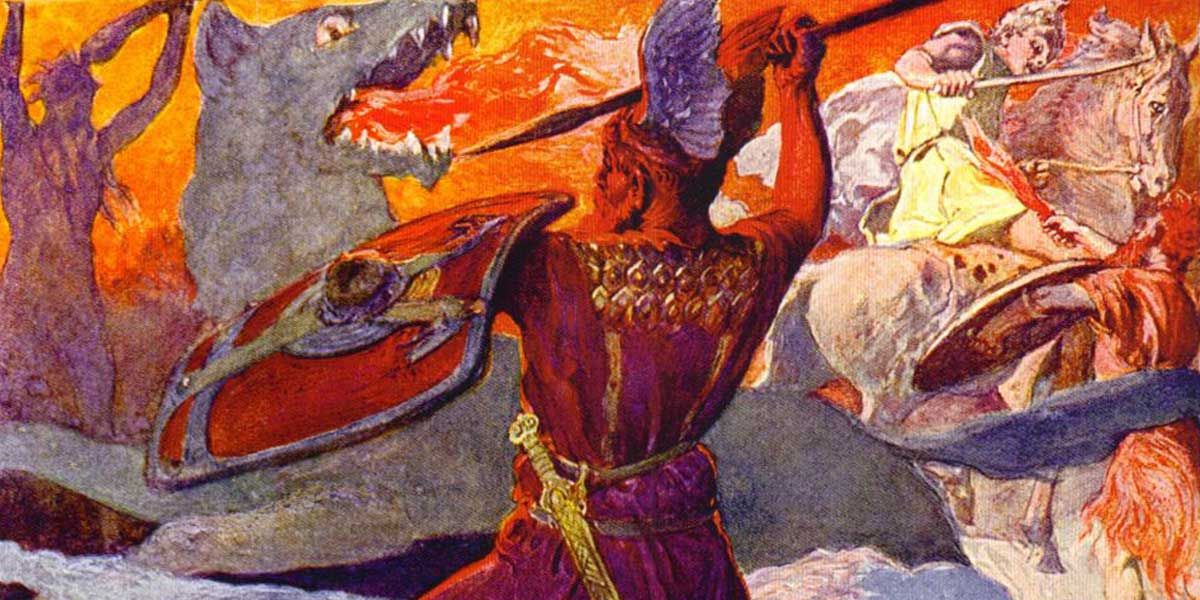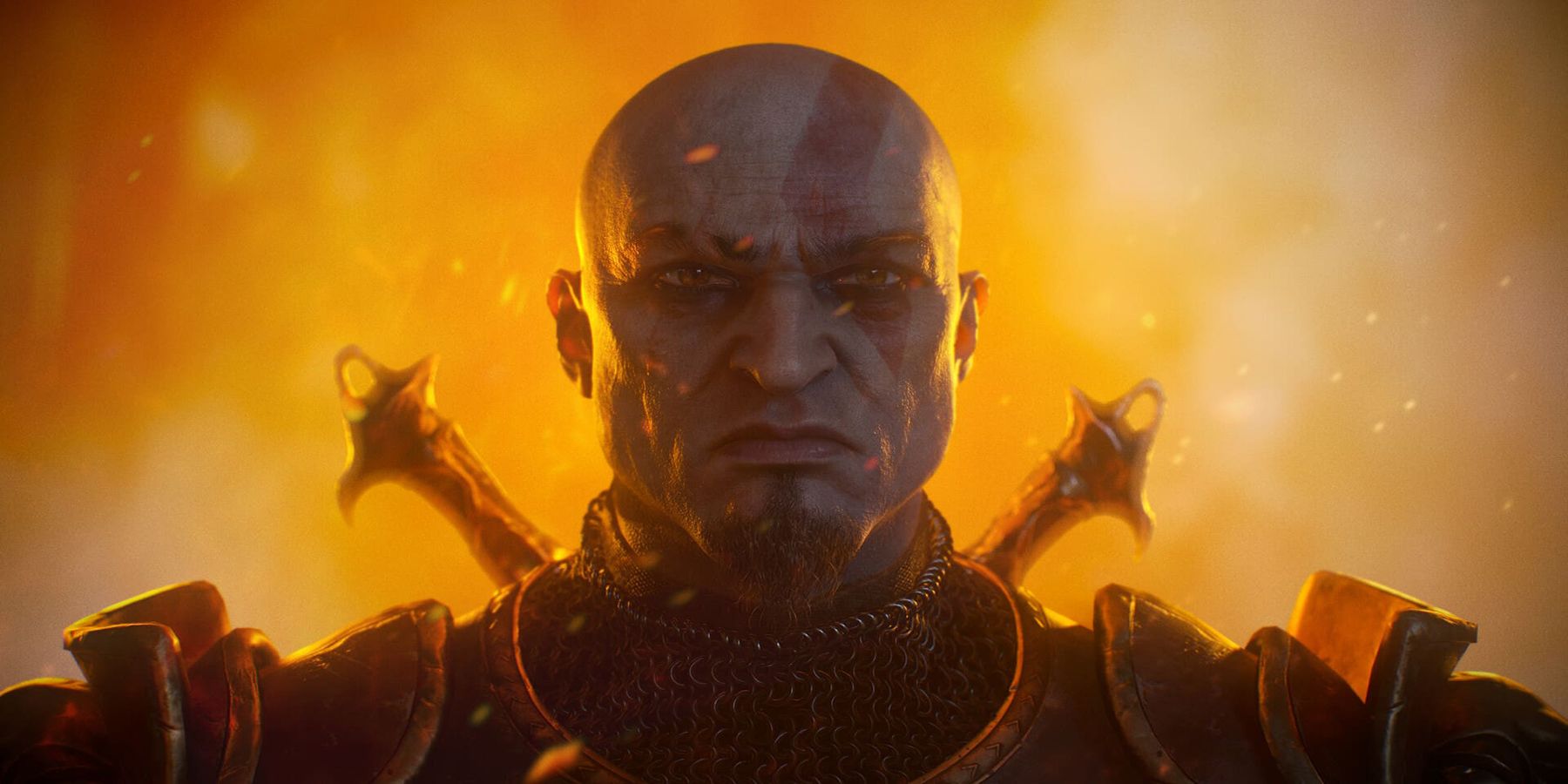Although player anticipation for God of War: Ragnarok has been high since the franchise’s last installment in 2018, there’s still been a notable upturn in hype over the last few months. With the game’s November 9 release on PS4 and PS5 quickly approaching, it’s little surprise that Santa Monica Studio has become more comfortable leaning into this atmosphere. September’s State of Play presentation and the game’s showstealing cinematic story trailer demonstrate this perfectly.
During what was only the second in-game cinematic trailer for God of War: Ragnarok, Santa Monica Studio teased several of its sequel’s plot threads. Even though it stands to reason that the complete experience will feature more, players now have a decent understanding of the adventure that awaits Kratos and Atreus. The latter’s prominence within the video in particular could even be taken as a sign that one fan theory about Kratos’ doom is about to come true.
Kratos’ Death Theory
Since the closing moments of God of War 2018’s story fans have been worried about the titular deities' future. It’s fair to say that, for several compelling reasons, these concerns have been justified. Having fought valiantly to bring Faye’s ashes to the peaks of Jotunheim, Kratos was rewarded with a visage of his own apparent demise. Painted along one of the realm’s walls was a mural of a man appearing to be the Greek god of war, seemingly dying in the arms of a young archer.
Even though the imagery was presented in an intentionally vague manner, this has prompted some fans to speculate that Atreus might play a part in his father’s ultimate downfall. Santa Monica Studio’s decision to reveal that the young demigod was referred to as Loki by the giants, immediately after the mural scene, reinforced this theory for many fans. Despite the fact that Norse mythology’s stories are often open to interpretations, modern adaptations have painted the god of mischief as something of an antagonist.
Beyond the fact that Atreus has seemingly been prophesied to end Kratos’ life, there’s been subtle hints within other aspects of the series. For example, now that it’s been confirmed that God of War: Ragnarok will end the franchise’s Norse saga, some fans have speculated that its primary protagonist could be put out to pasture so that the younger hero can star instead. This would make sense too, as the journey of rehabilitation and redemption that Kratos is currently walking has ended in tragedy for countless other characters.
Atreus the Team Leader
While they might all prove to be deliberate attempts at misdirection by Santa Monica Studio, parts of the recent State of Play trailer reinforce the theories that fans have had about Kratos’ doom. Throughout the video it’s clear that Atreus has become transfixed by his Loki alter-ego, and that he is going to be the one who leads the charge to prevent Ragnarok from happening. It’s inferred by lines of dialogue that the plans that he and Kratos have become embroiled in have come mostly from his own mind.
There have also been other hints that this dynamic was going to come to the fore. The trailer that the studio shared at Sony’s last PlayStation Showcase, for example, also revealed that the idea to free Tyr seemingly came from Atreus. Based on Loki’s familial links to Fenrir in Norse mythology, it stands to reason that the scenes featuring the giant wolf within the State of Play trailer have come about because of Atreus’ schemes as well.
Although Kratos has voiced his disapproval of his son’s plans and motivations in both of God of War Ragnarok’s trailers, crucially he states in the most recent one that he’s still going to follow him no matter what. Going along with every whim that Atreus has is, in his opinion, the easiest way to keep the boy safe. This reluctant desire to follow Atreus without question could be what the Jotunheim mural was predicting all along, though.
While much has been made about Atreus physically killing his father, it would be more fitting from a mythological perspective if the act was slightly more symbolic. Blindingly following the boy and all of his whims could be the act that makes Kratos vulnerable to an outside attack or plot to destroy him. Even though Atreus wouldn't be the one to land the decisive blow in this scenario, he would still be partly responsible for his father’s doom.
Atreus' Relationship with Odin
God of War: Ragnarok’s State of Play trailer also provides a possible way for this to come to pass. In the video, it’s clear that Atreus has started to keep secrets from his father. Possibly fueled by Kratos’ reluctance to reveal his godhood in 2018’s installment, the young boy has apparently started to work toward the pair’s goals on his own. Even though it’s not confirmed concretely, it sounds as though Odin has somehow become involved in those plans as well.
Based on Atreus’ opening line of dialogue in God of War: Ragnarok’s story trailer, it’s clear he’s keeping secrets because of a misguided yet well-intended effort to keep his father safe. It’s also stated that one of these secrets is so big that Kratos will just have to trust him without question. When it comes to possible information that Atreus could be hiding like this, it’s hard to imagine him keeping anything hidden unless it came from a source that he knew his father would automatically reject. This is where Odin and his famous trickery skills come into the picture.
It isn’t too much of a stretch of the imagination to believe that Odin would strike a deal with Atreus, specifically in an attempt to manipulate him. After all, both parties technically have what the other one wants. Atreus is destined to bring about Ragnarok and Odin’s death, and is therefore the one most likely to break this fate. Similarly, the All-Father is the only one who could provide him with answers about his past and Loki persona. If it turns out that the pair have been meeting in secret, that would blow the door wide open for Kratos’ ultimate demise to play out.
Kratos’ Doom
In almost all adaptations and depictions of Norse mythology, Asgard’s lead god has been shown to be a master tactician and manipulator. Atreus giving Odin anything that he wants on top of that, even accidentally, would likely make Kratos more vulnerable to attack. Even though the latter has cheated death and the afterlife on frequent occasions, a reinforced Odin could be the hardest battle that the Greek god of war has ever faced. Which could, in turn, ensure his next death is final.
What could be telling about the prophetic mural from God of War 2018 is the fact that Atreus isn’t depicted as directly killing Kratos. Instead, a snake is seemingly shown to have left his body before wrapping itself in a knot and attacking Kratos. It’s obviously open to interpretation, but the serpent could be a symbolic depiction of Odin’s theoretical lies and manipulations. Having opened himself up to the god’s deceptions, Atreus would therefore be partly responsible. This would also incorporate other fan theories that have suggested the boy in the mural is wailing out of sadness.
Based on other hints that Santa Monica Studio has sprinkled into God of War: Ragnarok’s recent story trailer, it’s clear that Kratos’ mortality will play a role in the game no matter what. Its popularity might have become the unofficial tagline for the sequel, but the line where Kratos says death can have him when it’s earned him is ominous, to say the least. Not only was the line spoken as a threat, it also sounded a lot like an invitation for someone like Odin to manipulate Atreus into making it happen.
God of War: Ragnarok will release on November 9, 2022 for PS4 and PS5.

